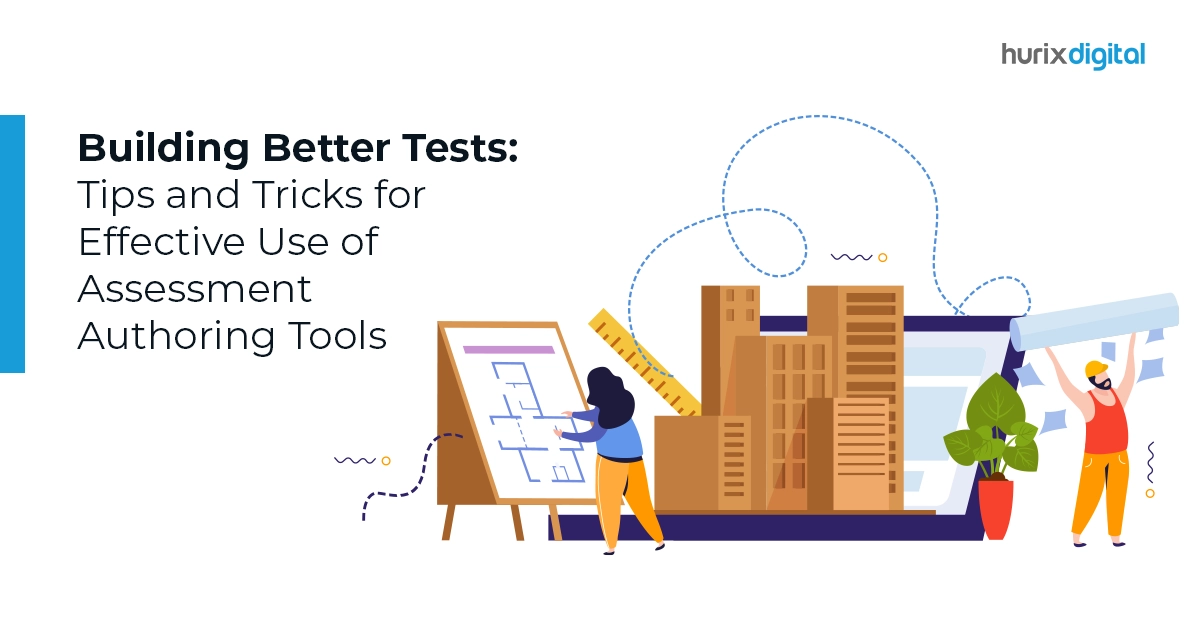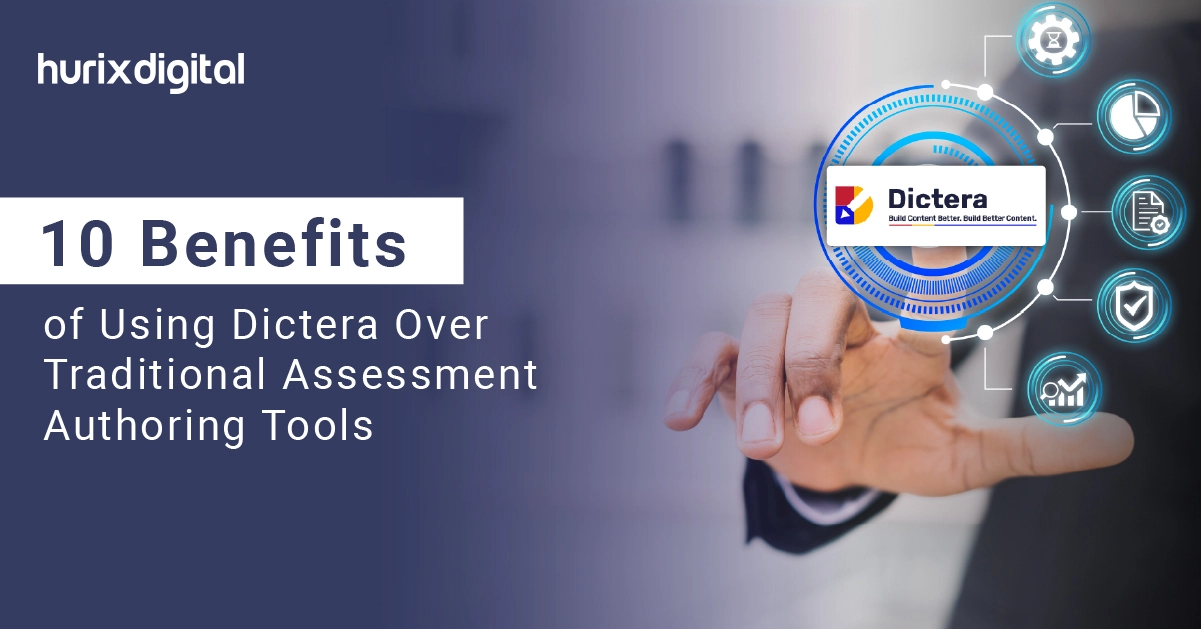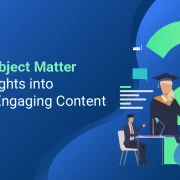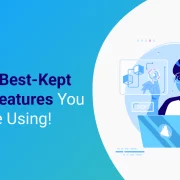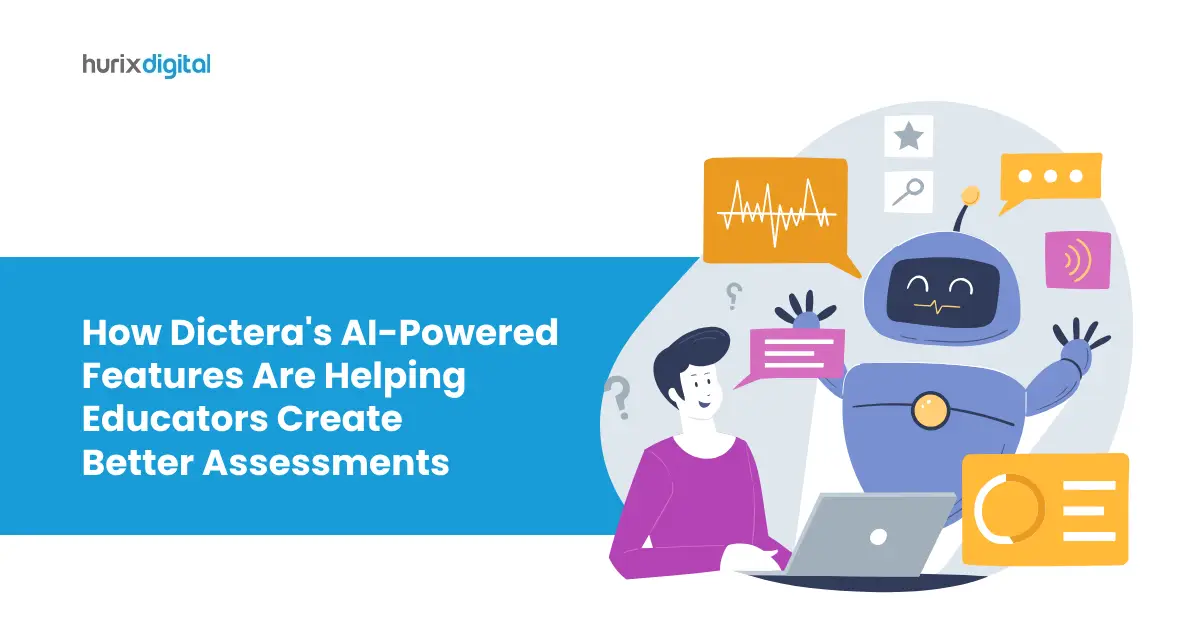
How Dictera’s AI-Powered Features Are Helping Educators Create Better Assessments?
Today’s digital landscape has resulted in a major shift in the education industry, and with it has come a shift in how instructors teach, evaluate, and create assessments and curriculums. With artificial intelligence (AI) continuously improving, educational institutions can now benefit from a host of tools that can help them streamline the learning process and create high-quality assessments.
In fact, the market for AI in education is set to reach $20 billion by 2027. This demonstrates the potential in the power of AI to improve the quality of education and make it more equitable.
Dictera is an assessment authoring tool that relies on the power of AI and Machine Learning (ML) to help educators build high-quality assessments while accurately analyzing their results via an intuitive platform. In this guide, we take you through the various benefits of this tool and how it can help you step up the quality of the assessments you create.
Table of Contents:
How Does Dictera Work?
Dictera is an authoring tool that has redefined the process of creating assessments. It uses the power of AI and ML to automate the process of creating assessments, offering authors, Subject Matter Experts (SMEs), and others a whole host of benefits.
This tool can generate a wide variety of assessments in the form of Multiple Choice Questions (MCQs), performance tasks, and even open-ended questions. Furthermore, its algorithm is designed to be able to score these assessments based on a variety of criteria while collaborating with other creators, authors, or editors in real time.
Top Four Benefits of Dictera in Creating Assessments
In this section, we look at some of the key benefits Dictera offers creators when creating assessments.
1. It Can Help Streamline the Content Creation Process
Creating high-quality assessments at scale can be a challenge. However, Dictera offers you the benefit of automating the assessment-creating process, thereby saving you time and effort.
This automation, as a result, frees educators to perform core strategic tasks, such as student instruction, support, and curriculum development, among others.
2. It Helps Educators Seamlessly Collaborate in Real Time
Creating assessments often involves more than just a signal pair of hands. However, without the right technology, collaborating to create high-quality assessments can be a challenge and makes the process time-consuming.
With Dictera, however, educators can seamlessly collaborate in real-time, define specific roles for each individual, and assign tasks to ensure maximum efficiency. The platform offers shared workspaces where educators and other stakeholders can make changes and improvements to assessments in real time while sharing other best practices to achieve better results.
What’s more, unlike traditional assessment creation, Dictera’s intuitive dashboard also offers users the ability to establish milestones, thereby ensuring the most efficient and effective use of resources in achieving them.
Also Read: Everything You Need to Know About The Use of AI in Educational Assessment in 2023 and Beyond
3. It Helps Improve the Quality of Assessments
The probability of a dip in quality often increases when manually creating content and assessments at scale. This, in turn, results in unreliable insights and data to build smarter and more comprehensive curriculums or training modules.
With Dictera’s online assessment tools, however, educators don’t have to worry about the quality of assessments they create. This is because it takes away the bulk of the time-consuming and logistical aspects of creating assessments.
4. It Offers Data-Drive Insights to Improve the Quality of Assessments Over Time
High-quality data and insights form the backbone of quality assessments. One of the key benefits of using a fully automated tool like Dictera is that it offers high-quality data and insights on student performance across a range of metrics.
This helps educators make more informed decisions about students’ strengths and weaknesses and, as a result, personalize the learning experience to ensure each student successfully meets their learning objectives.
These insights can also be incredibly useful when used in a professional setting, as team leaders can identify knowledge and skills gaps in their teams. This, in turn, enables organizations to focus on providing means for continuous learning at the workplace to improve their employees’ efficiency and keep them engaged.
Also Read: Dictera AI Assessment Generators vs. Traditional Testing Methods: Which One is Right for You?
In Conclusion
The strength of good education lies not just in high-quality methods of instruction but also in the creation of high-quality assessments. Dictera is an AI-powered assessment authoring software that enables educators to collaborate in real-time to create high-quality assessments for both educational institutions and organizations alike.
It offers a host of benefits that include the following:
- Enabling seamless collaboration in real time
- Offering high-quality data and analytics
- Streamlining the assessment creation process
- Defining roles, assigning tasks, setting milestones to ensure maximum efficiency, and more.
If you’re an author, educator, trainer, or SME and want to find the best way to automate the process of creating high-quality assessments, you must consider Dictera. Start your free trial today and experience the power of AI in assessment creation.

Vice President – Digital Content Transformation. He is PMP, CSM, and CPACC certified and has 20+ years of experience in Project Management, Delivery Management, and managing the Offshore Development Centre (ODC).

